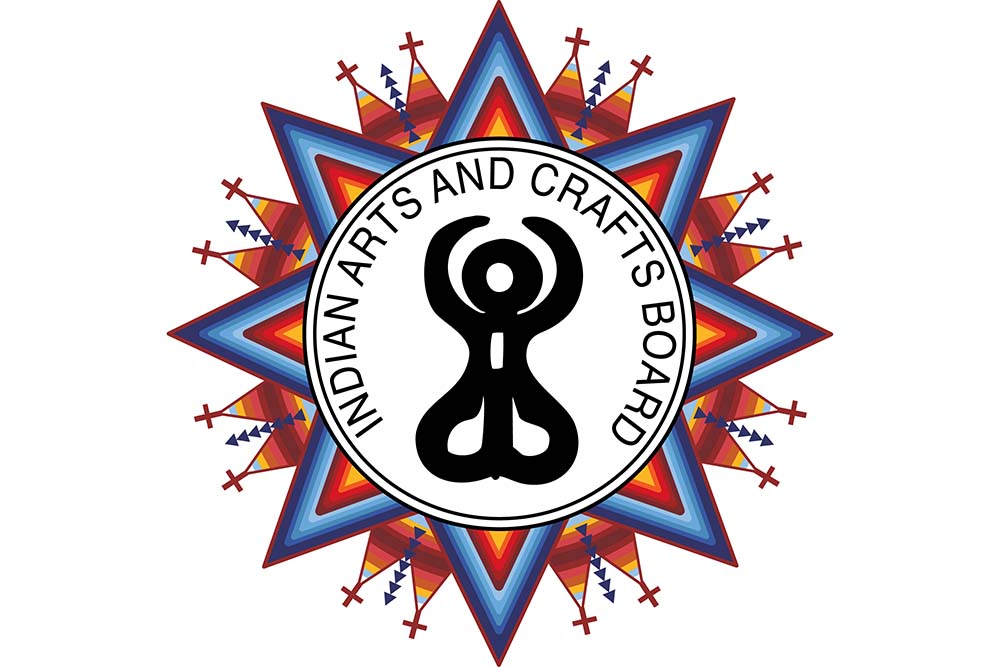
- Details
- By Indian Arts and Craft Board
The Indian Arts and Crafts Board (IACB), an agency in the U.S. Department of the Interior, was created by Congress to promote the economic development of American Indian and Alaska Natives (Indian) through the expansion of the Indian arts and crafts market. As part of its promotional services, the IACB maintains the Source Directory of American Indian and Alaska Native Owned and Operated Arts and Crafts Businesses, a great resource for people looking to buy authentic Indian art or Indian artists interested in a free business listing.
WHAT IS THE SOURCE DIRECTORY?
There are more than 500 businesses listed in the Source Directory, including Indian arts and crafts cooperatives and Tribal arts and crafts enterprises; businesses and galleries privately owned and operated by individuals, designers, craftspeople, and artists who are enrolled members of federally recognized Tribes; and a few nonprofit organizations, managed by enrolled members of federally recognized Tribes, that develop and market art and craftwork.
Some of the businesses listed in the Source Directory maintain retail shops or open studios; others sell online, by appointment, or mail order only. This information is provided in the listing, along with business hours, contact information, major products, website information, mail order, and special services offered. Business listings are available on the IACB’s website, https://www.doi.gov/iacb/artisans.
WHO CAN APPLY FOR A SOURCE DIRECTORY LISTING?
The IACB provides services, including Source Directory listings, to enrolled members of entities on the list published by the Bureau of Indian Affairs under the Federally Recognized Indian Tribe List Act of 1994, 25 U.S.C. § 5130.
Source Directory applications must include a copy of the Tribal enrollment documentation of the business’s owner or documentation showing that the business is Tribally owned and operated. The business must also certify that most of the art and craftwork it sells is produced by members of federally recognized Tribes.
For application instructions and more information about the Source Directory, visit doi.gov/iacb/source-directory-application-forms.
THE INDIAN ARTS AND CRAFTS ACT: REPORT A VIOLATION
While the beauty, quality, and collectability of authentic Indian art and craftwork make each piece a unique reflection of our American heritage, it is important that buyers be aware that fraudulent Indian art and craftwork competes daily with authentic Indian art and craftwork in the national marketplace. Thus, a top priority of the IACB is the implementation and enforcement of the Indian Arts and Crafts Act (IACA) of 1990, as amended, a truth-in-advertising law that provides criminal and civil penalties for marketing products as "Indian-made" when such products are not made by Indians, as defined by the IACA. If you become aware of any market activity that you believe may be in violation of the IACA, please contact the IACB with the relevant information, such as websites, photographs, suspicious advertising, receipts, business cards, etc. Complaints may be filed online or by calling the toll-free number below.
WANT TO LEARN MORE?
To learn more about the IACB and its services, please contact:
Indian Arts and Crafts Board
U.S. Department of the Interior
Tel: 1-888-ART-FAKE or 1-888-278-3253
Web: www.doi.gov/iacb
Email: [email protected]
Help us defend tribal sovereignty.
At Native News Online, our mission is rooted in telling the stories that strengthen sovereignty and uplift Indigenous voices — not just at year’s end, but every single day.
Because of your generosity last year, we were able to keep our reporters on the ground in tribal communities, at national gatherings and in the halls of Congress — covering the issues that matter most to Indian Country: sovereignty, culture, education, health and economic opportunity.
That support sustained us through a tough year in 2025. Now, as we look to the year ahead, we need your help right now to ensure warrior journalism remains strong — reporting that defends tribal sovereignty, amplifies Native truth, and holds power accountable.
 The stakes couldn't be higher. Your support keeps Native voices heard, Native stories told and Native sovereignty defended.
The stakes couldn't be higher. Your support keeps Native voices heard, Native stories told and Native sovereignty defended.
Stand with Warrior Journalism today.
Levi Rickert (Potawatomi), Editor & Publisher
